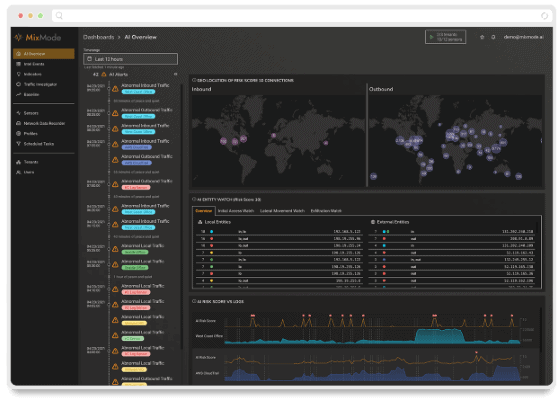69% Of IT Executives Say They Cannot Respond To Cybersecurity Threats Without AI
AI in Cybersecurity as a defense has been assessed in a number of recent surveys and reports as a vital part of our future digital lives. Organizations are finally coming to that realization with 69% acknowledging that they cannot respond to cybersecurity threats in any meaningful manner without AI, according to an article published in Forbes Magazine earlier this week based off of statistics from the Capgemini report.
Another 64% said having AI lowers the cost of detecting breaches and responding to them—by an average of 12%; 74% said it enables a faster response time: reducing the time taken to detect threats, remedy breaches and implement patches by 12%; 69% also said AI improves the accuracy of detecting breaches, and 60% said it increases the efficiency of cybersecurity analysts, reducing the time they spend analyzing false positives and improving productivity; 73% are testing use cases for AI in cybersecurity.
“The recent surveys, studies, forecasts and other quantitative assessments of the health and progress of AI highlighted the role of AI in cybersecurity defense and in scoring standardized tests, the relationships between data migrating to the cloud and data modernization, lax security standards for IoT devices, and that the U.S. still leads the global race for AI domination but that China is making more rapid progress,” Gil Press wrote for Forbes Magazine. Read More
A New Tool for Hackers
A sudden rise in automated phishing attacks and advanced hacks is creating a crisis for companies not properly armed with AI cybersecurity software. The fact of the matter is, hackers will use AI against us whether or not we choose to protect ourselves with it.
This week Security Boulevard published yet another article chronicling the rise of hackers using Artificial Intelligence, Machine Learning and Big Data.
“With each passing year, attacks are getting more personalized with a higher likelihood of success. Hackers have even started using AI to accelerate polymorphic malware, causing code to constantly change and make it undetectable,” the article states.
“The good news is this intelligence be used to protect the infrastructure as well. What makes AI cybersecurity unique is its adaptability. Intelligent cybersecurity doesn’t need to follow specific rules. Rather, it can watch patterns and learn. Even better, AI can be directly integrated into everyday protection tools – such as spam filters, network intrusion and fraud detection, multi-factor authentication, and incident response.”
The key is to have a cybersecurity system with more advanced technology than anyone planning on hacking you, and in order to do that it is important to choose the right kind of AI security.
Context-aware or unsupervised AI, like that developed by MixMode, can detect a breach within five-minutes of it occurring. As the war between hackers and security professionals wages on, response time will become key in protecting one’s network.
AI In Cyber Security Market Will Reach to USD 30.9 Billion By 2025
Zion Market Research just came out with a new report predicting that the Artificial Intelligence in Cyber Security Market will reach 30.9 Billion USD by 2025.
As international adoption of AI continues to grow strongly we are seeing its prevalence in cybersecurity grow as well because of the amount of money and labor hours it can save for enterprises that adopt it into their security systems.
Among numerous benefits attained by AI implementation in cyber security, its ability to adapt to changes in detecting potential threats is the most beneficial for organizations.
“The globally increasing IoT adoption and the number of connected devices have simultaneously increased the risk of cyberattacks. The rising number of cybercrimes is propelling the artificial intelligence (AI) in cyber security market. Some common cyber frauds faced by large enterprises are identity and payment card thefts, these cybercrimes when not resolved on time can lead to huge monetary losses. Cybersecurity providers are significantly using AI solutions for tackling such cyberattacks by early threat detection, response time reduction, and segregation as per priority,” a press release by Globe Newswire read.
“AI solutions not only provide wider security as compared to human potential but also simplify complete recognition and acknowledgment procedures related to cyber frauds. Thereby, the escalating cybersecurity risk incidences are prominently driving the AI in cyber security market globally. However, the lack of technical expertise for AI application implementation may hinder the AI in cyber security market growth.” Read More
MixMode Articles You Might Like:
Featured MixMode Client Success Story: HighCastle Cybersecurity
Top 5 Ways AI is Making Cybersecurity Technology Better
What is Network Detection and Response (NDR)? A Beginner’s Guide
The Tech Stack Needed to Start an MSSP Practice: Firewall, SIEM, EDR and NDR
AI-Enabled Cybersecurity Is Necessary for Defense: Capgemini Report
Web App Security: Necessary, Vulnerable, and In Need of AI for Security

